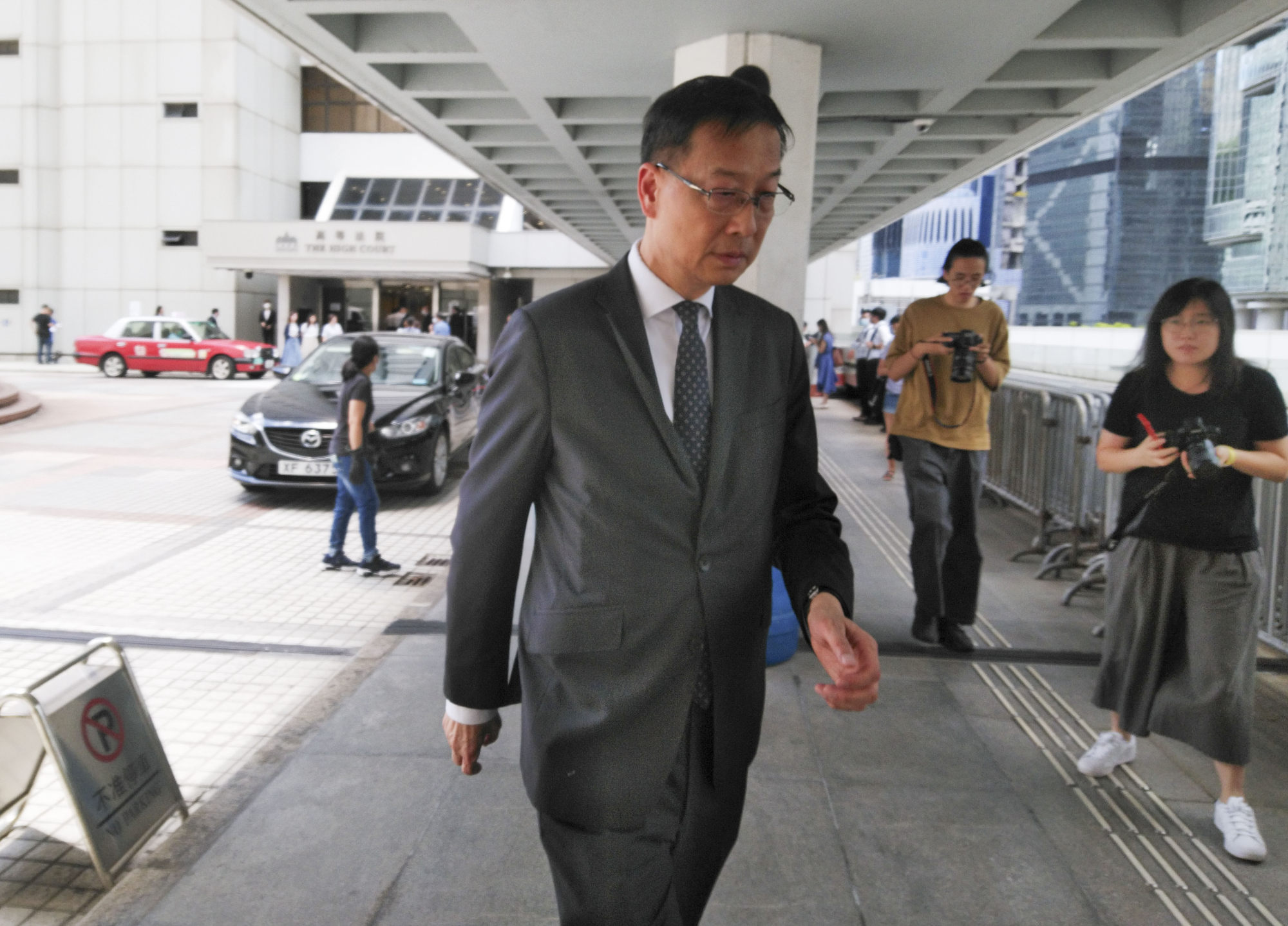
Judge warns ‘Glory to Hong Kong’ protest song ban might not have effect government wants
- Mr Justice Anthony Chan says injunction might not be any different from national security law sanction against use of song with seditious intent
- He adds ban may also breach double jeopardy rule, but admits if song presented national security threat, that outweighs ‘chilling effect’ of prohibition
The judge added that the proposed order might also fall foul of the legal prohibition on double jeopardy and subject offenders to punishments for a criminal offence and civil contempt.
But if the anti-government tune presented a national security threat that would outweigh any risk of a “chilling effect” a ban might create, he said.

“I would have thought that given the importance of national security, [in] balancing against the chilling effect, I suppose, it wouldn’t be a very difficult exercise to rule in favour of national security,” the judge said.
But Chan, also approved by Chief Executive John Lee Ka-chiu to hear national security cases, added: “That is assuming the injunction is effective and serves the [intended] purpose.”
The court is expected to hand down its ruling next Friday after it hears arguments for and against the application in a three-hour session.
The court instead engaged an independent lawyer to provide opinions on the merits of the government’s contentions as an amicus curiae – a “friend of the court”.
Senior Counsel Benjamin Yu, who appeared for the justice minister, said the city leader insisted the song would continue to be used and circulated in ways that undermined national security unless it was banned by the court.
Yu said an injunction would make “a material difference” and highlighted that the city’s airport and railway services had benefited from court orders after they were embroiled in the chaos and violence of 2019.
He emphasised the ban was not intended to target “lawful” journalistic activity or penalise anyone who used the song for innocent purposes.
Yu tried to ease judicial concerns about double punishment and highlighted the courts would still play a gatekeeping role and be able to decide whether to allow the justice secretary to start contempt proceedings against individuals.
But Senior Counsel Abraham Chan Lok-shung, who was asked to give independent views at the hearing, said a ban would add the unnecessary risk of a defendant possibly having to face two trials over a single unlawful act.
Chan argued the move was counterproductive and highlighted the surge of interest in the song after the ban bid was filed.
He added a prohibition on the song could not compel Google or other platforms to censor their content because the government only wanted to punish use of the song for illegal purposes rather than impose a blanket ban.
“How would this order … demonstrate the content is in violation of Hong Kong law? It simply doesn’t serve the function that is hoped for,” Chan argued.
He told the court the national security law was a sufficient deterrent and that the proposed injunction would not add anything of substance to public education or compliance with the law.
“If the government considers it necessary to ramp up measures to promote so-called public awareness or consciousness, generally or specifically in terms of the song, why can’t it do that by enhancing and supplementing its efforts in other areas?” Chan said.
